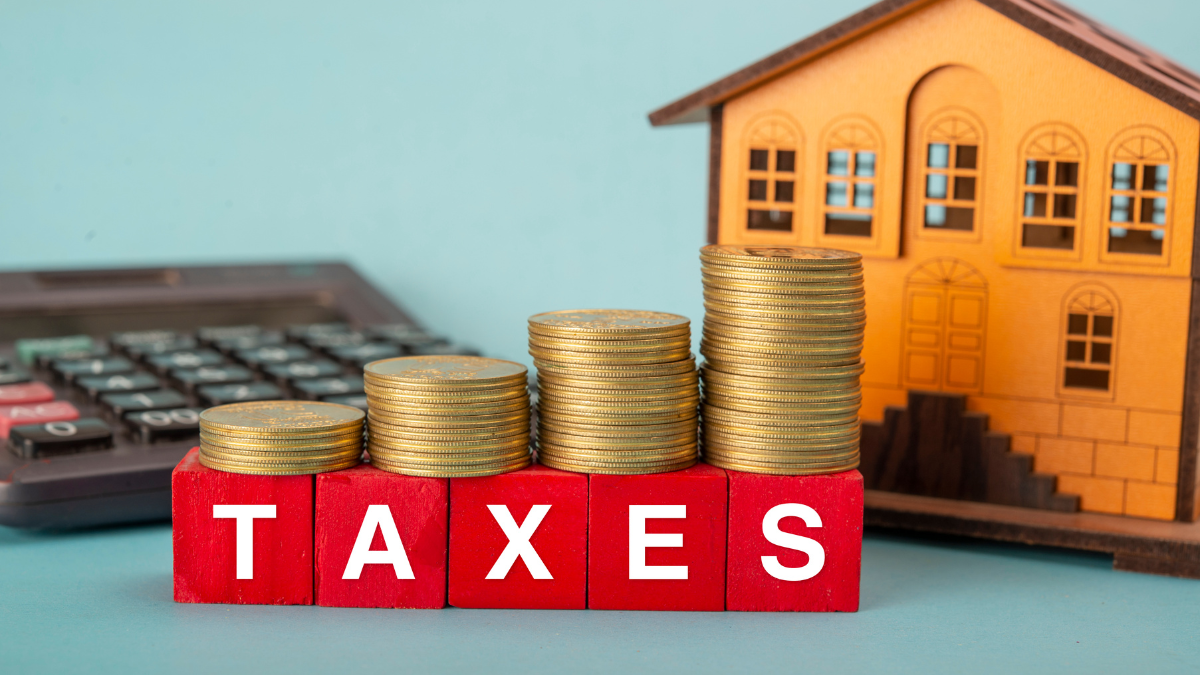
Capital Gains Tax: What Is It, and How It Works
November 9, 2022 . Real-Estate Industry . 10 min readIndia’s economy is still growing. Therefore it needs continuous infusions of capital to keep booming. Realtors and investors play a significant role in propelling India’s economic development, making Capital Gains Tax a crucial tool by providing them with favourable tax treatment for asset purchases and sales.
In the following paragraphs, we will discuss the concept of capital gains tax and how it is calculated.
What is Capital Gains Tax?
When an investor sells an investment and earns a profit, that profit is subject to a tax known as the capital gains tax. It is necessary to pay this amount for the fiscal year that coincides with the sale of the investment.
If an Indian citizen inherits property and does not sell it, they are exempt from paying capital gains tax under the country’s Income Tax Act. However, if the inheritor chooses to sell the property, the tax must be paid on the profits.
Types of Capital Assets
- Short-term Capital Asset
If an investment is kept for fewer than three years, it is considered a short-term capital asset. However, real estate, including homes and land, now only needs to be held for 24 months instead of the previous 36. Thus, if an individual decides to sell a piece of land or a house after having owned it for at least 24 months, the profit from the sale is considered a short-term capital gain.
If the property is the result of an inheritance or a gift, the duration of the previous owner’s possession is also relevant in assessing whether the asset is better classified as a short-term or long-term capital asset. Any bonus stocks or privilege shares will be classified according to the date they were granted.
- Long-term Capital Asset
Long-term capital assets are those that a person has owned for a period of time more than three years, making them eligible for the term. This category includes assets like debt-oriented mutual funds, jewellery, and other items that have been kept for more than 36 months, and there is no reduction period of 24 months in this scenario.
Tax Rate on Long-Term and Short-Term Capital Gains
| Tax Type | Condition | Tax Applicable |
| Long-term capital gains tax | Except for sales of units or shares of equity-oriented funds | 20% |
| Long-term capital gains tax | Upon the sale of equity-oriented fund units or common stock | 10% in excess of Rs. 1,00,000 |
| Short-Term capital gains tax | When no securities transaction tax applies | The STCGT is applied to the taxpayer’s ITR, and the person is taxed according to his income tax bracket. |
| Short-Term capital gains tax | When the securities transaction tax applies | 15% |
Calculating Long-Term Capital Gains Tax
The following is a rundown of the steps involved in calculating long-term capital gains:
- First, the person must evaluate the asset’s full value.
- Following that, the person must subtract the following:
- Expenses incurred as a result of the transfer
- Acquisition expenditures
- Improvement expenditures
- After completing the above steps, a person must next subtract any applicable exemptions provided under the following sections to determine the long-term capital gains tax:
- Section 54B,
- Section 54F,
- Section 54EC,
- Section 54.
Calculating Short-Term Capital Gains Tax
Individuals need to follow the steps outlined below in order to arrive at an accurate estimate of their short-term capital gains tax:
- The first thing that the person has to do is consider the full value of the property.
- After that, the points that are listed below need to be subtracted:
- Capital outlays made to improve the property
- All the money spent on buying the property
- Costs associated with the sale or exchange of the property
- After the deduction, the remaining sum is the short-term capital gain.
Deductions to Reduce Capital Gains Tax
If you possess an asset, you may be able to lower your capital gains tax liability by taking advantage of provisions under the following sections of the Income Tax Act.
- Section 54
The capital gains on the selling profits of a residential real estate are excluded from taxation if those funds are subsequently invested in the acquisition of another residential property. This, however, is contingent on the following criteria being met:
- Buying real estate should be done no more than two years after selling it, or at the very most, a year in advance.
- If the property is still in the construction phase, the transfer must occur no later than 3 years from the original property transfer date.
- Within the first 3 years after acquisition or construction, the newly purchased property is not transferable.
- There should be an Indian location for the newly purchased property.
- Section 54F
You are eligible to get the advantage of Section 54F if you sell any other asset, such as agricultural property that is within 10 kilometres of a city or rare artworks, jewellery, or loan money, for example. This clause allows a deduction to be taken from the profits of the liquidation of any financial instrument in order to pay for the acquisition of a home or other residential property.
- Section 54EC
Any profits made on bonds issued by the National Highways Authority of India (NHAI) or the Rural Electrification Corporation (REC) are free from capital gains tax in excess of Rs 50 lakh. They come with a fixed rate of interest (now 5.25%) and a term of 5 years. These bonds have a taxable interest rate. To qualify for this write-off, your investment must have resulted in a financial gain from the sale of land and buildings.
Conclusion
It is important for investors with taxable accounts to understand the capital gains tax, the method by which capital gains tax is computed, and the distinction between long-term and short-term capital gains.
Investors have a better chance of retaining a greater portion of their earnings if they are knowledgeable about the various tax rates and structures applicable to capital gains.
Do you plan on selling your old house? This guide will assist you in navigating the taxation of capital gains. However, HomeCapital may assist you if you are looking for a new home. HomeCapital provides up to 50% interest-free financing for down payments with no interest levied to the home buyer.



